The Senate Assembly will elect three members to the Senate Advisory Committee on University Affairs (SACUA) at its March 18 meeting. The three top vote getters will serve three-year terms. Additional candidates may announce their intent to run up to the time of the election.
SACUA is the nine-member executive arm of the U-M faculty governance system. As of Record press time, eight candidates have indicated they will run in the election:
• Goncalo Abecasis, Felix E. Moore Collegiate Professor of Biostatistics and professor of biostatistics, School of Public Health.
• Sara Ahbel-Rappe, professor of Greek and Latin, LSA.
• Dr. Joseph Richard Custer, professor of pediatrics and communicable diseases, Medical School.
• Avery Demond, associate professor, Department of Civil and Environmental Engineering, College of Engineering.
• John Mansfield, associate director, North Campus Electron Microbeam Analysis Laboratory.
• Anne Mondro, associate professor of art and design, Penny W. Stamps School of Art & Design.
• Laura Olsen, Arthur F. Thurnau Professor of Molecular, Cellular, and Developmental Biology; professor of ecology and evolutionary biology; faculty director of the Undergraduate Program in Biology.
• Bob Ziff, professor of chemical engineering, College of Engineering.
Biographical information and position statements supplied by the candidates follow.
Gonçalo Abecasis
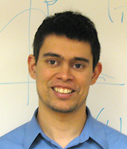
Abecasis
Education: Bachelor of Science (Honours), Genetics, University of Leeds (U.K.); Doctor of Philosophy in clinical medicine/human genetics, University of Oxford (U.K.)
Faculty Leadership: Leads a small research group at the School of Public Health. His research and teaching integrates statistics, computational biology, genetics and medicine. He has co-authored more than 200 research papers. He has served on multiple committees at U-M, SPH and the Medical School, including committees focused on academic curriculum, academic rank and tenure review recommendations, and on furthering the university’s research mission. While at the university, Abecasis was named a Pew Scholar for the Biomedical Sciences (2005-2007), won the School of Public Health Excellence in Research Award (2008), and the International Society for Computational Biology Overton Prize (2013). Current Committee Service: Secretary of the University Advisory Committee (2012-present); Provost’s Global Challenges for a Third Century Committee (2011-present); University Advanced Research Computing and Technology Committee (2012-present); School of Public Health Diversity Committee (2012-present); School of Public Health Committee on Academic Rank (2009-present); School of Public Health Web Committee (2013-present); Biostatistics Department Curriculum Committee (2011-present); Biostatistics Department Genomics Search Committee (2011-present).
Statement of candidate: “The university must continue to attract and promote a diverse faculty, bringing in the best and brightest from all around the world, and allowing them to excel. In a constantly changing environment, it will become harder and harder to pigeon hole faculty into departments and schools. I will energetically defend faculty interests, which include not only compensation, benefits and a working environment compatible with a world class university, but the maintenance and furthering of high-quality, innovative research and teaching. While cost cutting pressures cannot be ignored, it is vital to the university’s mission that academic freedom, in both research and teaching, should be maintained and that individual faculty members should be encouraged and supported in their active and diverse contributions towards the university’s excellence in teaching and research.”
Sara Ahbel-Rappe

Ahbel-Rappe
Background: Ahbel-Rappe has been teaching in the Department of Classical Studies for more than 20 years. She holds a dry appointment in Near Eastern Studies and has taught cross-listed courses in women’s studies, philosophy and history. She is the author of four books, including a translation, monographs and an edited volume. She has held fellowships at the Institute for Advanced Studies and Center for Hellenic Studies, and is a recipient of the Mellon Foundation New Directions fellowship.
Faculty Leadership: Senate Assembly Member, 2010-present; served one year on College Nomination Committee; College Curriculum Committee; College Tenure Committee; chair, SACUA nominating Committee 2013.
Statement of candidate: “The Universal Declaration of Human Rights (UDHA) was adopted by the General Assembly of the United Nations in 1948. Article 26 paragraph 2 states:
“’(2) Education shall be directed to the full development of the human personality and to the strengthening of respect for human rights and fundamental freedoms.’
“In my view, it is imperative to keep this directive in mind as the university continues to change and grow into its 21st century mission. Education in the humanities has a critical role to play in the well being of our future citizens.
Especially now in this year of change in leadership for the university, it is important that professors from every sector of the University of Michigan have a voice in the future of our institution.”
Dr. Joseph Richard Custer
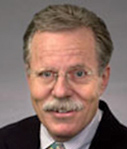
Custer
Education: University of Minnesota, (Bachelor of Science 1968, Medical Degree 1972)
Fellowships: Residency and Chief Residency, University of Rochester. (1972-75). Neonatal/Perinatal Medicine, Pulmonary/Pediatric Critical Care Medicine, Harvard Medical School. (1975-1980)
Faculty Leadership: Harvard Medical School, (1980-84): Institutional Review Board, Massachusetts General Hospital, House Officer Selection Committee. University of Michigan (1984-present) Past: Founding director, Pediatric Intensive Care Unit; founding director, Pediatric Critical Care Medicine Fellowship Training Program. Past chairs held: Pediatric Cardio-Pulmonary Resuscitation Committee, Pediatric Ethics Committee. Past committees served: Medical School Admissions, Medical School Financial Aid, Pediatric Directors Advisory Council (C.S. Mott), and LCME (Liaison Committee Medical Education) 2012 site visit subcommittee. Current: Medical director, Pediatric Respiratory Therapy Services, C.S. Mott Children’s Hospital. Current committees: Medicine — Pediatric Combined Residency Selection Committee, Pediatric Ethics Committee, Child Abuse Review Committee, (C.S. Mott Children’s Hospital). Senate, alternate 2008-11, active: 2012-15.
Statement of candidate:
“Michigan must remain financially and culturally competitive so that we retain an excellent faculty and recruit new faculty members. Compensation and benefits must keep pace with other institutions.
“We must achieve and maintain gender, racial and cultural diversity. Of equal importance is avoiding a school of entitlement and legacy. We must work to find ways to admit and support economically disadvantaged students and graduate students.
“The brick, mortar and lectern traditional lecture model must be reviewed and modernized at all levels of education. Novel and effective methods of education need be studied, developed and analyzed. It is a privilege and honor to be a member of this faculty.”
Avery Demond
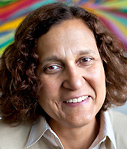
Demond
Education: Bachelor of Arts (biology), Williams College (1977); Bachelor of Science in Engineering (civil engineering), MIT (1980); Master of Science in Engineering (civil engineering), MIT (1982); Doctor of Philosophy (environmental engineering), Stanford University (1988).
Faculty leadership: Member, Academic Affairs Advisory Committee of the Senate Assembly, (2012-2015); chair, committee for accreditation of new undergraduate degree program in environmental engineering, (2012-present); director, Environmental and Water Resources Engineering (EWRE) Program, 2011-present; Faculty Ally for Diversity (Rackham), 2010-present; director, Michigan Engineering Transfer Support (College of Engineering), 2009-present; U-M Admissions Office (25 percent appointment), 2003-04; chair, Undergraduate Program, Civil and Environmental Engineering (2002-04); chair, Assessment Committee, Civil and Environmental Engineering (1998-2001); chair, Curriculum Committee, Civil and Environmental Engineering (1997-2001); member, Presidential Advisory Committee on Women’s Issues (U-M) (1997-2001).
Statement of Candidate: “Consensus in governance depends on the recognition of the unique perspectives that faculty bring to the university in their roles as educators, researchers and public servants. I believe that our university community is strengthened by the diversity of our faculty and I will work to ensure that the breadth of the collective faculty voice is reflected in university governance.”
John Mansfield
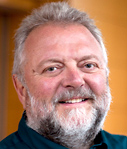
Mansfield
Education: Bachelor of Science, with honors (1979), School of Chemical Physics, University of Bristol, U.K.; Master of Science (1980), Physics, University of Bristol, U.K.; Doctor of Philosophy (1983), Physics, University of Bristol, U.K.
Faculty leadership: University Senate Assembly (2011-present), member of the Government Relations Advisory Committee (2005-present), member of the Communications Advisory Committee (2005-present), chair of the Communications Advisory Committee (2011-present), Electron Microbeam Analysis Laboratory Executive Committee.
Statement of candidate: “The University of Michigan is an exceptional institution and the intellectual depth and creativeness of its faculty is key to its continued success. Faculty inclusion in the administration and governance of the university is essential. SACUA has a crucial role in establishing and maintaining a multi-directional dialog between the Senate Assembly and the University Senate and the university’s leadership. I would work to maximize the flow of information between these constituencies to ensure that the governance of the university is based on the contributions of all involved.”
Anne Mondro

Mondro
Education: Bachelor of Fine Arts, College for Creative Studies (1999); Master of Fine Arts, Kent State University (2002).
Faculty leadership: Committee on University Values of the Senate Assembly (2012-present), U-M Creative Arts and Dementia Committee (2012-present), School of Art & Design Curriculum Committee (2012-present), School of Art & Design Graduate Student Committee (2008-10), U-M’s Life Science & Steering Committee, Arts of Michigan Course Connection Grant Review Committee (2006-2008).
Statement of candidate: “Protecting faculty rights to develop innovative teaching and time to be creative, risk-taking researchers is vital to the future of the university. A key component to 21st century education is the support of various modes of learning. If elected to SACUA, I will strive to preserve academic freedom.
“I will also work to build clarity into university processes for the faculty, and transparency into the contributions and responsibilities of the faculty, to the public. Coming from the arts I will work to support and nurture creative inquiry and support the needs of my colleagues. I am dedicated to improving the academic climate for faculty and students.”
Laura J. Olsen
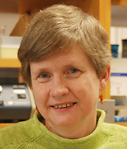
Olsen
Education: Bachelor of Arts in biology and mathematics with a minor in German, Doane College, Crete, N.E.; Master of Science, Iowa State University; Doctor of Philosophy, University of Wisconsin-Madison.
Faculty leadership: Director of the Undergraduate Program in Biology, 2011-present; associate chair for Graduate Studies, 2009-11; associate chair for Research and Facilities, 2001-05; Advisory Board on Intercollegiate Athletics, 2008-11; University Tenure Committee, 2011-present; Rackham Executive Board, 2009-12; LSA Curriculum Committee, 2002-04, 2006-09; Rackham MORE (Mentoring Others Results in Excellence) Committee, 2007-12; MCDB Departmental Executive Committee; multiple research grant review panels for USDA and NSF (1996-present); American Society of Plant Biologists, executive committee (2004-05) and Committee on Women in Plant Biology (2002-08); Organizer of two American Society of Plant Biologists Workshops on Lab Leadership (2007, 2011).
Statement of candidate: “The University of Michigan is an internationally renowned institution, in no small part due to its world-class faculty. The privilege and challenge of faculty governance is to represent this very diverse group of individuals as we face increasing demands on our time, concerns about continued retirement and health benefits, and an uncertain financial future. I believe that it is important for all faculty voices to be considered in decisions being made that affect our outstanding faculty and amazing student body as we work to preserve and improve our scholarship and academic life.”
Robert M. Ziff
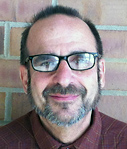
Ziff
Education: Bachelor of Science (physics), University of California at Los Angeles (1971); Ph.D., Rockefeller University (1976). Post-Doctoral Fellowships: Los Alamos National Laboratory (1976-78), State University of New York at Stonybrook (1978-82).
Faculty Leadership: Chairman of College of Engineering Library Committee, member of Chemical Engineering Executive Advisory Committee several times, member of many college and university committees, graduate and master’s chair of the Department of Chemical Engineering, two terms in Senate Assembly, substitute member of SACUA (fall 2012).
Statement of candidate: “Faculty governance is an integral part of a university. SACUA serves as a liaison between the faculty and both the administration and regents. My intention is to strengthen the role of the faculty, which has seen its influence diminish with time. Important issues include the defense of tenure, maintenance of benefits for current as well as retired faculty, maintaining excellence in academics in the face of declining federal support and a growing student body, and making this university affordable and welcoming to a diverse student body. These are the issues I will push for as your representative on SACUA.”

